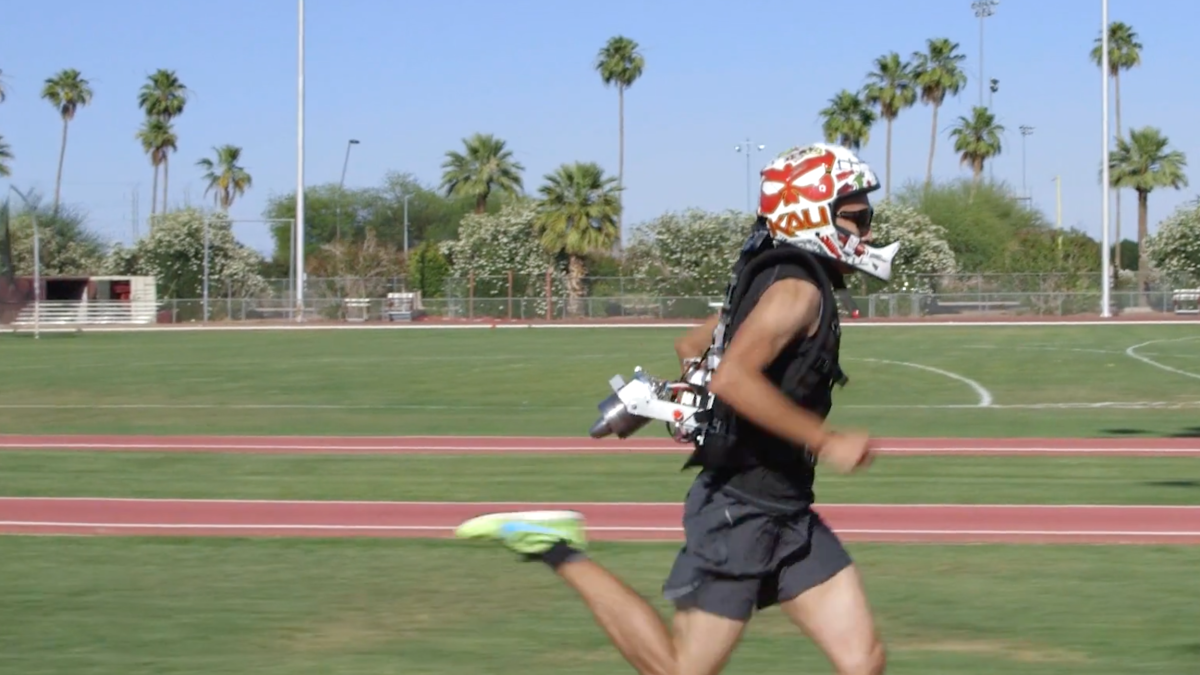A jet pack designed by an Arizona State University engineer with “a touch of Wile E. Coyote in him,” according to Sports Illustrated, has been updated to be lighter and better suited for use in extreme sports.
Jason Kerestes, robotics engineer with The Boeing Company, says he was able to “eliminate quite a bit of the weight that was on the original version” by getting rid of the aluminum and plastic framing.
Wearing the new, waist-mounted version, a bicycle rider on a test run was able to increase the top speed from 39 mph to 53 mph, and a rider on a long skateboard got up to 32 mph, Kerestes said.
The jet pack gained attention two years ago when a demonstration video circulated, featuring a runner on a track wearing a backpack-style prototype. Media outlets including Sports Illustrated and Gizmodo picked up the story, explaining the original goal of increasing the running speed of U.S. Army soldiers.
“The military gets the coolest toys first,” Gizmodo wrote.
“Lookout, Road Runner!” the Sports Illustrated headline touted.
Kerestes, who studied mechanical engineering as a master’s student at ASU, said that aside from making his jet pack smaller and framing it with carbon fiber, he’s been working on new technology with medical potential.
“I’m working on designing a new exoskeleton called REST-Exo, for robotic exoskeletal support technology, to help people that have trouble standing,” he said, mentioning people with knee or ankle injuries. He wants to be able to help them “get back up and walk.”
“Anything’s possible.”
More Science and technology

ASU postdoctoral researcher leads initiative to support graduate student mental health
Olivia Davis had firsthand experience with anxiety and OCD before she entered grad school. Then, during the pandemic and as a result of the growing pressures of the graduate school environment, she…

ASU graduate student researching interplay between family dynamics, ADHD
The symptoms of attention deficit hyperactivity disorder (ADHD) — which include daydreaming, making careless mistakes or taking risks, having a hard time resisting temptation, difficulty getting…

Will this antibiotic work? ASU scientists develop rapid bacterial tests
Bacteria multiply at an astonishing rate, sometimes doubling in number in under four minutes. Imagine a doctor faced with a patient showing severe signs of infection. As they sift through test…
